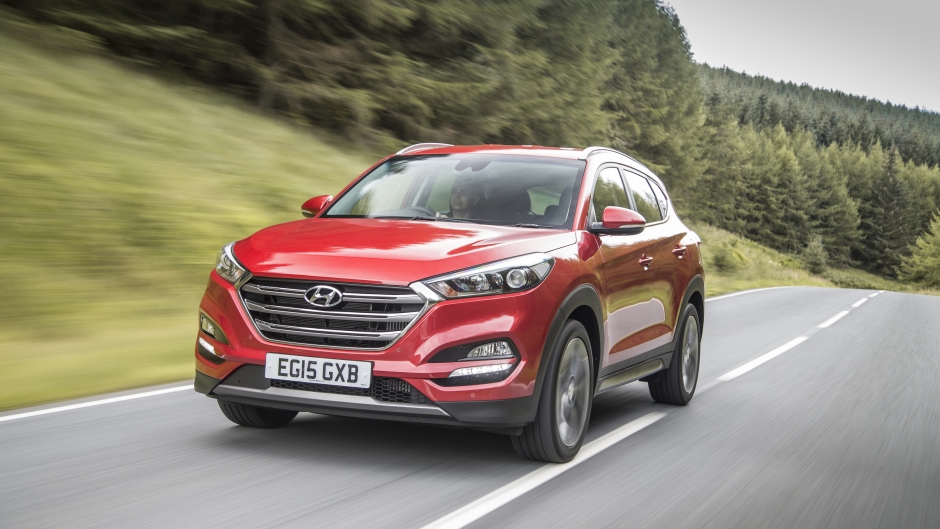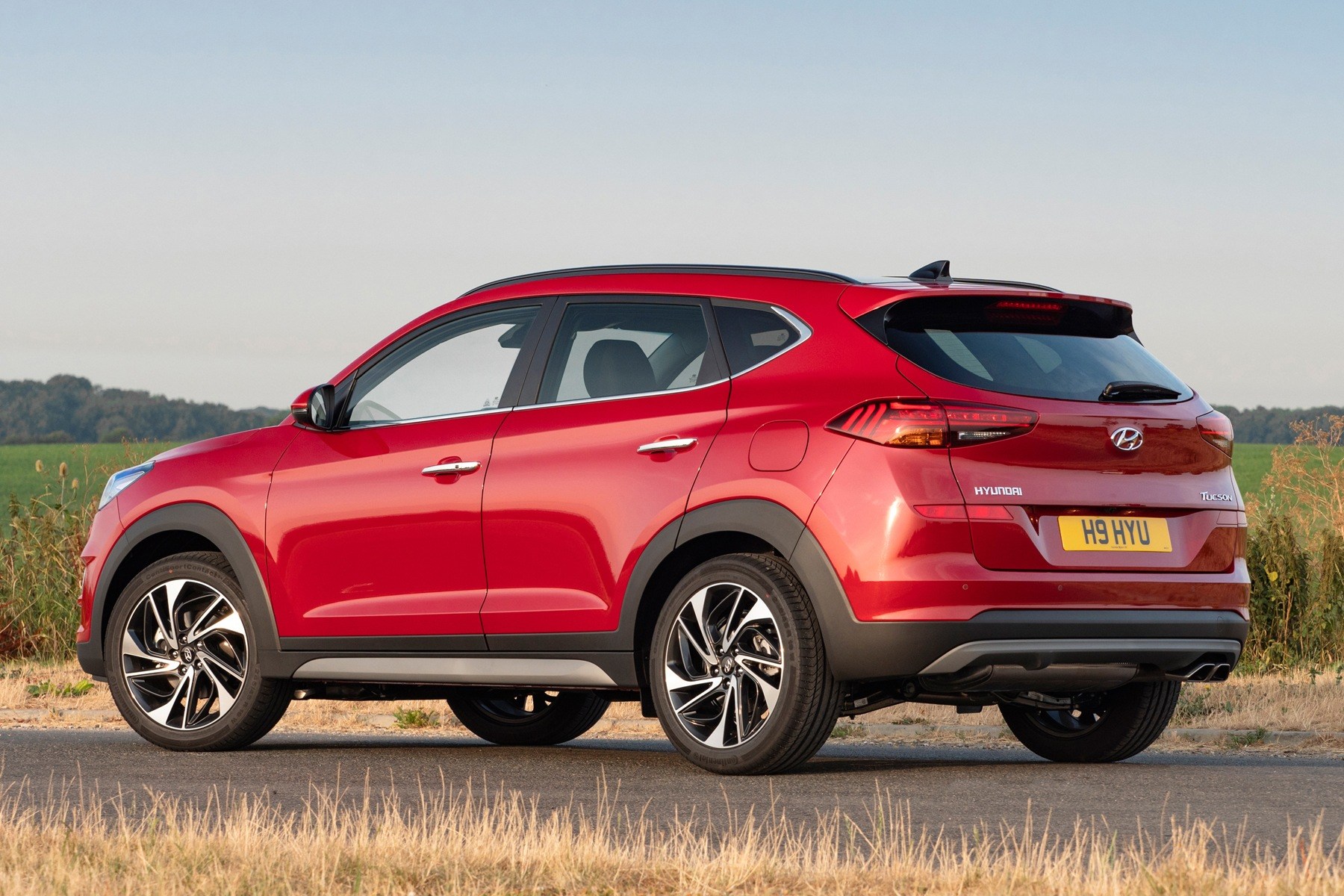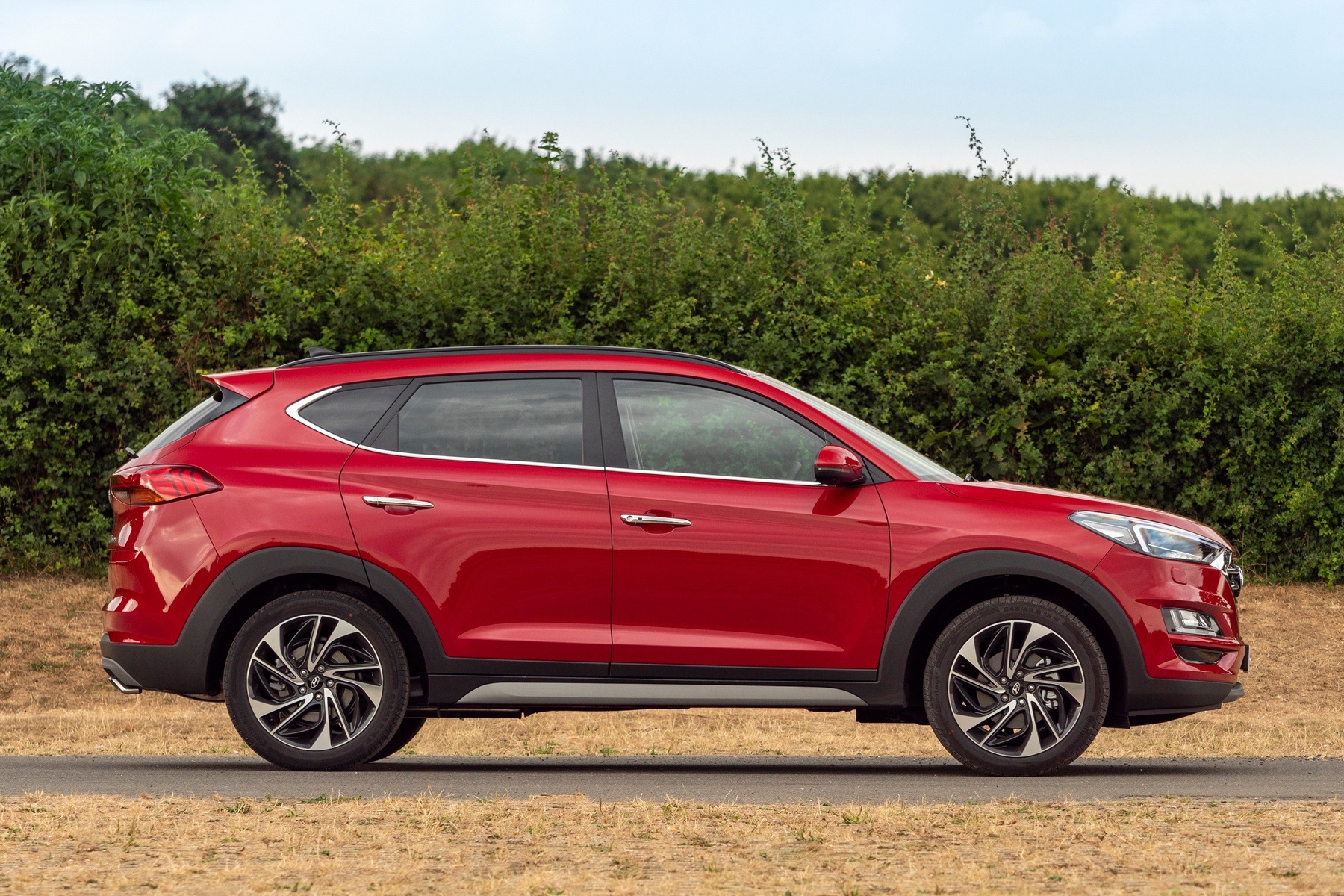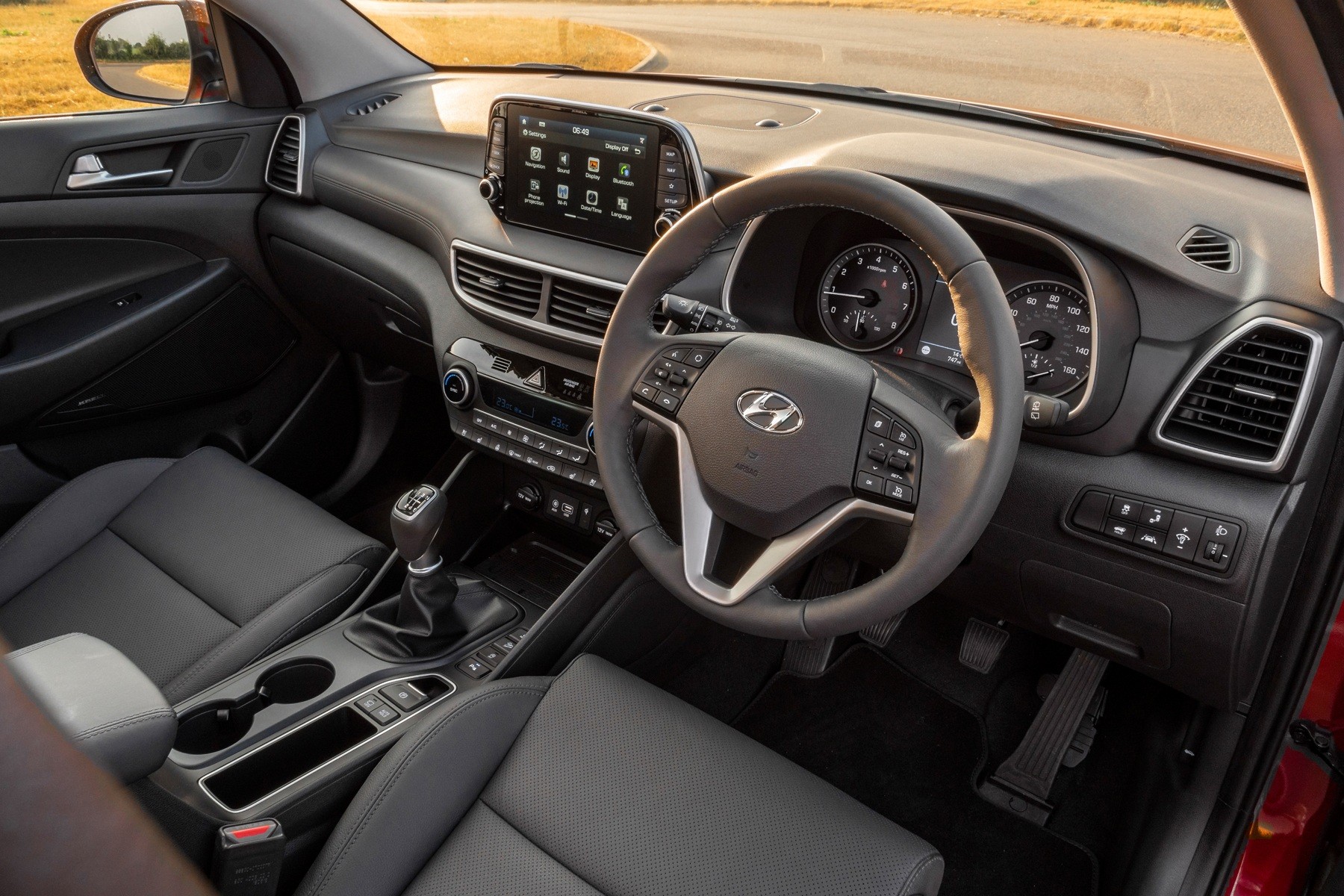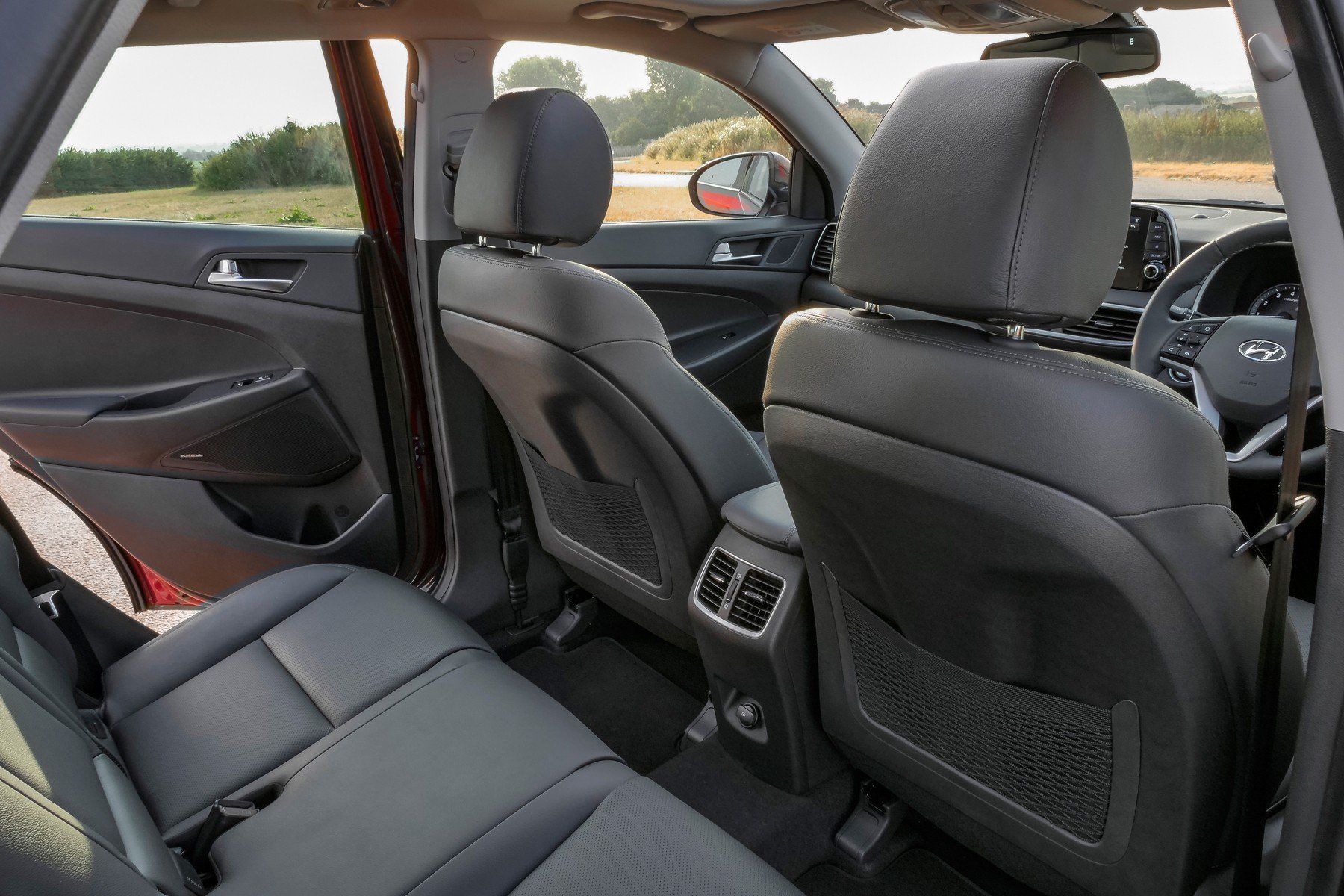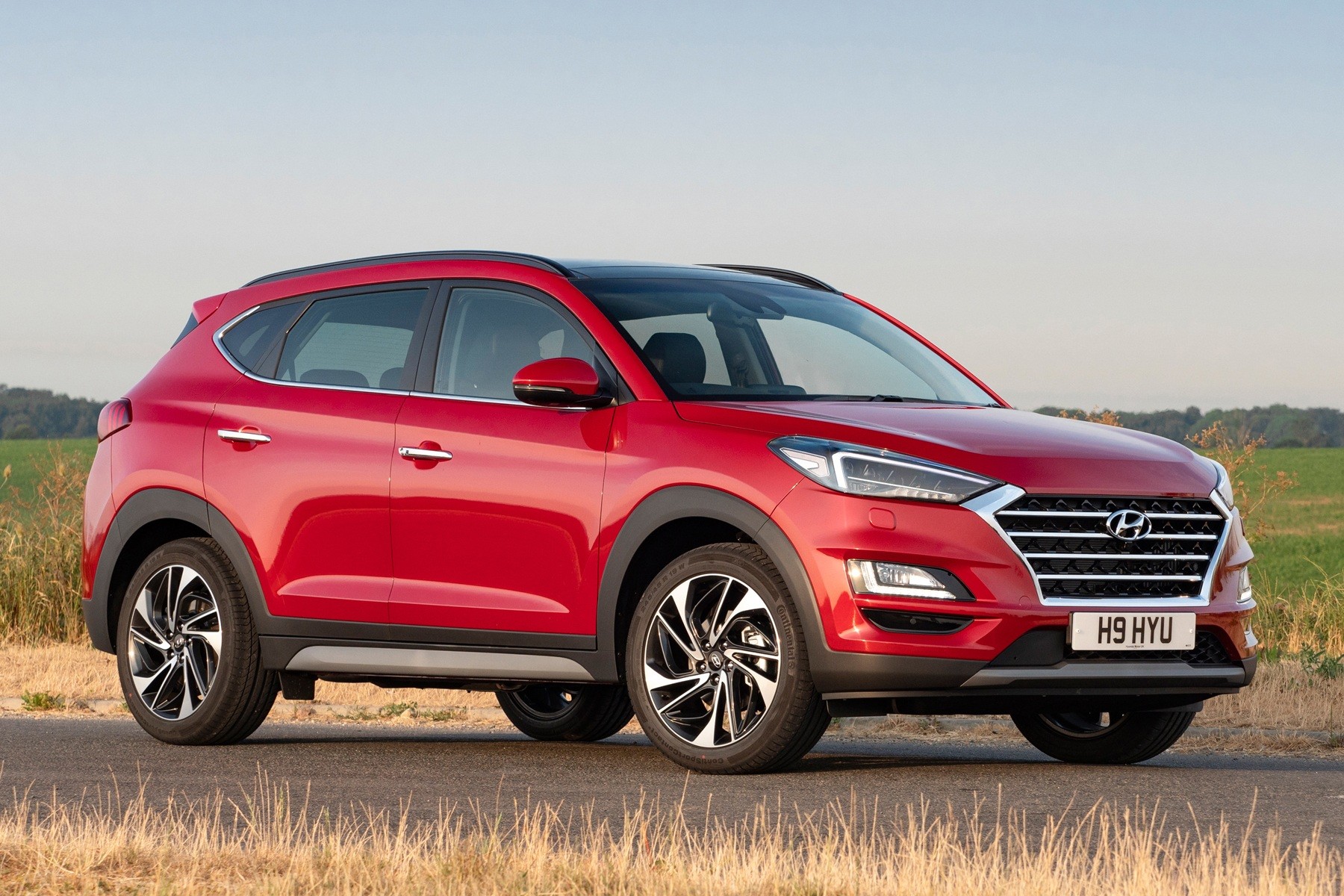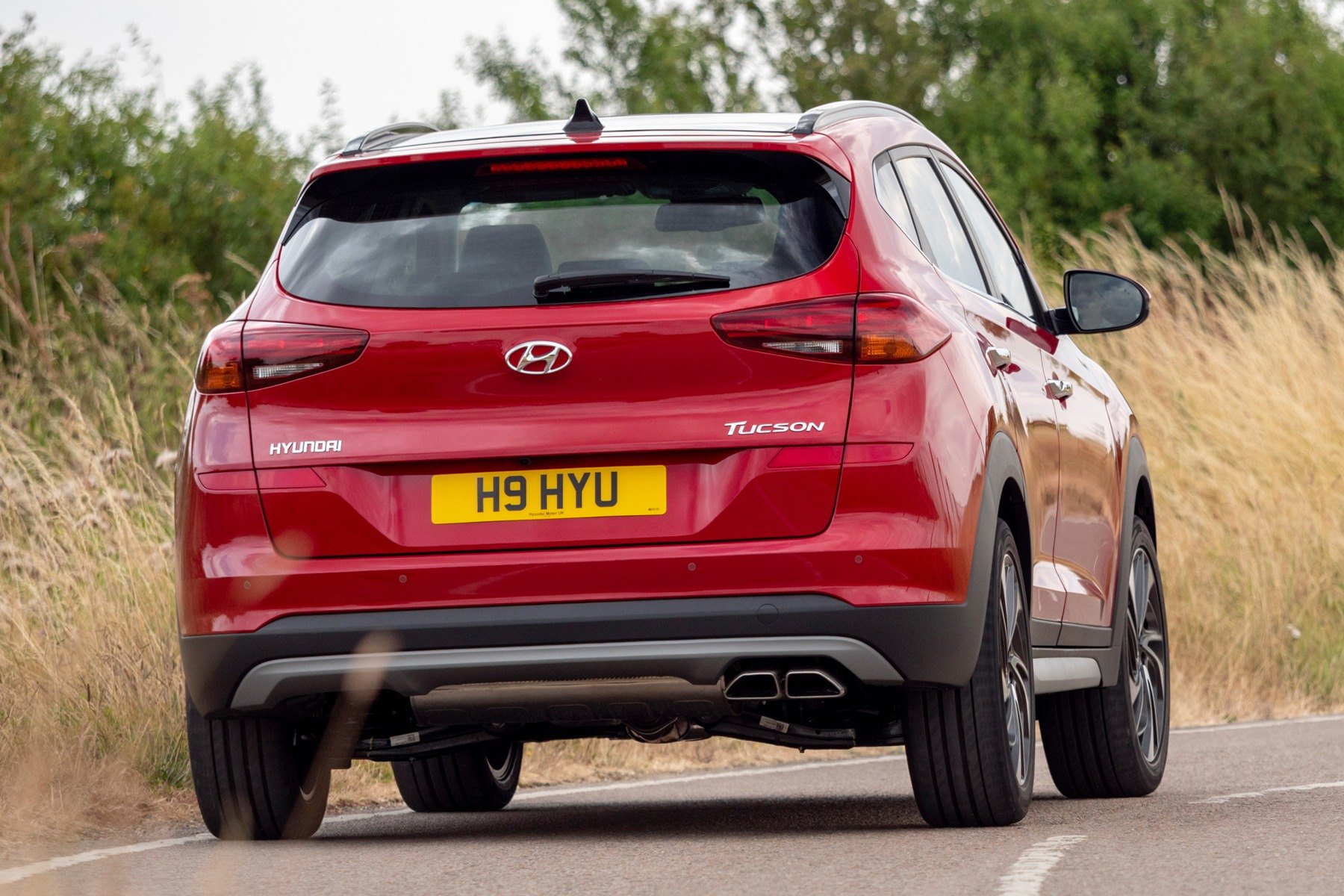Hyundai Tucson (2015-2021) Review
Recently updated, Hyundai's crossover is affordable, reliable and popular
Strengths & weaknesses
- The latest entertainment tech
- Five year warranty
- 5-star safety rating
- Not as affordable as it used to be
- Lacks premium touches
- Restricted view through rear window
Hyundai Tucson prices from £8,995 Finance from £178.01 per month
If there was a popularity contest in the car industry, the Sport Utility Vehicle (SUV) would win it. Drivers have flocked to SUVs like ducks chasing bread scraps, and Hyundai’s Tucson – pronounced too-son – is thrown into the seemingly never-ending mix of Qashqais, Kugas, Kodiaqs and Discovery Sports.
It’s a good looking car, but stands out for having more than just handsome looks. Hyundai keeps prices competitive – starting from around £22,000 - throws in a good level of standard equipment and adds a five-year unlimited mileage warranty. It all goes some way to explaining why it makes up a third of the marque's sales in the UK.
As a family SUV- like the Nissan Qashqai and Renault Kadjar - the Tucson aims to blend the low running costs and steady ride of a hatchback with the higher driving position and practicality of an off-roader.
You can't miss the new 'cascading' grille at the front, but the interior is less bold in its design. The new soft-touch dashboard is sensible, well-laid out and has a feeling of solidity, but the interior can't match the standard of quality of those offered by Volkswagen, Nissan or Renault.
In more positive news, the 2018 Tucson now comes fitted with a seven-inch touch screen display across the range, which perches on top of the dashboard, and includes DAB Radio, Apple CarPlay and Android Auto, as well as the option of a premium Krell audio system.
Passengers will find that the interior is one of the most spacious in its class, ahead of the Nissan Qashqai and Renault Kadjar. Even the roof, which slopes down towards the rear doesn’t prevent adults from sitting comfortably in the back, with plenty of legroom, too.
The 513-litre boot is also significantly bigger than the Nissan or Renault models, as well as the Ford Kuga (over which it has a significant advantage). It’s easily big enough for a large weekly shop or luggage for a family of four.
On the road, the Tucson is comfortable but - like the rest of the car, not particularly exciting to drive. However, it’s comfortable enough and feels stable, which is most likely all buyers of this type of car are expecting.
The engine line-up is focused on fuel economy than performance. Refreshed for 2018, there’s a new 1.6-litre CRDi diesel engine replacing the larger 1.7-litre unit of old. It sees a combined fuel economy figure of almost 60mpg for the first time.
On top of this, a range-topping 2-litre CRDi engine is available that's teamed with a clever 48V 'mild hybrid' electrical system, which aids the diesel engine during acceleration and under heavy loads, while not requiring the user to plug in or worry about charging the on-board batteries.
It's a first for the Korean marque and an impressive piece of technology for the segment, as it has previously only been seen on more luxurious crossovers from the big German companies.
However, the CO2 emissions and fuel economy figures are nothing to write home about, while the asking price is £34,060, making it difficult to recommend this over the less expensive diesel models in the range.
That said, this range-topper is now the only model available with four wheel drive, which provides more control on slippery surfaces, but most drivers will be satisfied with the cheaper two-wheel drive option.
Key facts
| Warranty | 5 years / unlimited miles |
|---|---|
| Boot size | 513 litres / 1,503 litres with seats down |
| Width | 1,850mm |
| Length | 4,475mm |
| Height | 1,645mm |
| Tax | £515 to £830 |
Best Hyundai Tucson for...
Best for Economy – Hyundai Tucson 1.6 CRDi 136PS
Although not the cheapest Tucson to buy outright, this model does boast the best fuel economy figure (nearly 59mpg) and emits the least CO2 (125g/km), making it the cheapest to tax. It’s available in SE Nav and Premium, but the former includes an impressive amount of kit for the price.
Best for Families – Hyundai Tucson 1.6 CRDi 136PS 7 Speed DCT SE Nav
Sticking with the most economical engine (as it is likely to be one of the best sellers) and choosing a mid-range trim level like SE Nav delivers most of the goodies that drivers of hard-working family cars will need at a price they can justify.
Best for Performance – Hyundai Tucson 1.6 T-GDi 177PS 7 speed DCT Premium
The Tucson is no performance machine by any stretch of the imagination but this powerful petrol model sees the 0-62mph sprint dip to 8.9 seconds and a top speed of 125mph achievable.
One to Avoid – Hyundai Tucson 2.0 CRDi 185PS 8 speed 48V Premium SE
It pains to say it but this technically sophisticated model is one to avoid, simply because it is expensive and the benefits don't balance out the hefty initial outlay.
History
- 2015 The current-generation Hyundai Tucson arrives in Britain.
- 2016 The 1.6 T-GDI turbocharged petrol engine is dropped due to lack of demand
- 2018 Tucson receives exterior styling updates and more interior kit. The engine range is also refreshed, while a 48V 'mild hybrid' is added to the line-up.
Understanding Hyundai Tucson names
Trim SE Nav
There are four trim levels on offer - the range starting with S Connect and rising to the lavish Premium SE models. Each trim level boasts more kit and commands a higher price.
Engine 1.6 GDi
There are five engine options in total, with the 1.6 CRDi diesel offered in two states of tune, a 1.6 GDi petrol, a 1.6 T-GDi turbocharged petrol and the largest 2.0-litre diesel unit mated to a 48V hybrid system.
Gearbox 6 speed manual
6-speed shows that the car has six gears. There is the choice of a six-speed manual gearbox, seven-speed Dual Clutch Transmission (DCT) and an eight speed automatic in the range-topping 'mild hybrid'.
Hyundai Tucson Engines
Petrol: 1.6 GDi, 1.6 T-GDi
Diesel: 1.6 CRDi and 2.0 CRDi
Hyundai has been striving to clean up its range of petrol and diesel engines with the 2018 Tucson facelift and the introduction of an all-new 1.6 CRDi diesel has helped to lower CO2 emissions and improve fuel economy figures.
Petrol engines also have an increased presence in the model line-up, which makes sense considering current attitudes towards diesel as a fuel, and this means both GDi and turbocharged T-GDi units are available across a wider range of trims than ever.
With that said, the 1.6 CRDi is likely to be one of the most popular amongst customers, simply because it delivers some respectable performance and the most impressive fuel economy figures.
This engine is also more refined that it has been in previous generations, meaning there's less noise and vibration leaking into the cabin, while responsiveness and performance is wholly acceptable, if not scintillating.
A new seven-speed DCT automatic gearbox works extremely well with the latest power plant, as it swaps gears effortlessly. Those with a heavy right foot may bemoan the speed at which this gearbox is willing to kick down a gear but most won't notice.
At the very top of the range sits the 48V, electrically assisted 2.0 CRDi diesel engine, which harnesses the power of a small battery pack to assist during acceleration and generally reduces the load on the engine.
It works well, particularly at low speed where the diesel unit is muted to a mere hum from underneath the bonnet, although fuel economy isn't greatly increased and the outright acceleration figures are still slower than the 177PS T-GDi petrol offering.
|
Fuel |
Mpg |
HP |
0 - 62mph |
Top speed |
|
|
1.6 GDi 132PS Manual |
Petrol |
40.4mpg |
132hp |
11.5s |
113mph |
|
1.6 T-GDi 177PS Manual |
Petrol |
37.7mpg |
177hp |
9.2s |
126mph |
|
1.6 T-GDi 177PS DCT |
Petrol |
40.4mpg |
177hp |
8.9s |
125mph |
|
1.6 CRDi 115PS Manual |
Diesel |
57.6mpg |
115hp |
11.8s |
109mph |
|
1.6 CRDi 136PS Manual |
Diesel |
57.6mpg |
136hp |
11.2s |
112mph |
|
1.6 CRDi 136PS DCT |
Diesel |
58.9mpg |
136hp |
11.8s |
112mph |
|
2.0 CRDi 185PS Automatic |
Diesel |
49.6mpg |
185hp |
9.5s |
125mph |
Hyundai Tucson Trims
S Connect, SE Nav, Premium, Premium SE
The refreshed 2018 Tucson brings in a number of changes, both inside and out, with the introduction of a slightly altered trim line-up.
Gone is the entry-level S trim, and in its place is a more generously equipped S Connect, which now features a seven-inch touchscreen display as standard.
This screen also boasts improved smartphone connectivity, with DAB radio, Apple CarPlay and Android Auto now coming as standard. On top of this, Hyundai throws in a number of clever safety systems, including Autonomous Emergency Braking, Lane Keep Assist and Driver Attention Alert.
Despite the additional tech upgrades, S Connect remains a relatively basic trim level, with cloth seats, tiny 16-inch alloy wheels and plain exterior elements not doing much to ensure the Tucson exudes appeal.
Stepping up to SE Nav, which is said to be the most popular among customers, adds 17in alloy wheels, rear parking sensors and dual-zone climate control so both front passengers can choose the temperature for their side of the car.
It also introduces satellite navigation to the mix, which is an improvement over last year's SE-badged cars but it does mean customers trade heated front seats and a couple of other extras.
Premium and Premium SE levels sit at the very top of the range and see things like electrically adjustable seats, halogen or LED headlights (only on Premium SE cars) and skid plates, body-coloured exterior mouldings and an array of eye-catching alloy wheels added to the package.
Although by far the best looking and most generously specified vehicles in the range, Premium SE Tucsons regularly top the £30,000 mark, which feels expensive.
Hyundai Tucson Reliability and warranty
Buyers can take comfort from the fact that Hyundai offers a five-year, unlimited mileage warranty on the Tucson, which also includes five years of roadside assistance and annual vehicle healthchecks for five years.
Better still, the Tucson placed much higher than any other Hyundai vehicle in the latest Auto Express Driver Power customer satisfaction survey, sitting between the Nissan Qashqai and the Land Rover Discovery Sport in the Best Cars to Own 2018 countdown.
Used Hyundai Tucson
There are currently 128 Hyundai Tucsons available on BuyaCar, with prices ranging from £8,995 to £37,999 for nearly-new models. Monthly finance payments start from £178.01 per month.
After three years, some models are predicted to be worth half the list price when new, which is a strong performance. That said, this new facelifted model will inevitably see the price of older, high mileage cars drop and we found a mid-range.
Other Editions
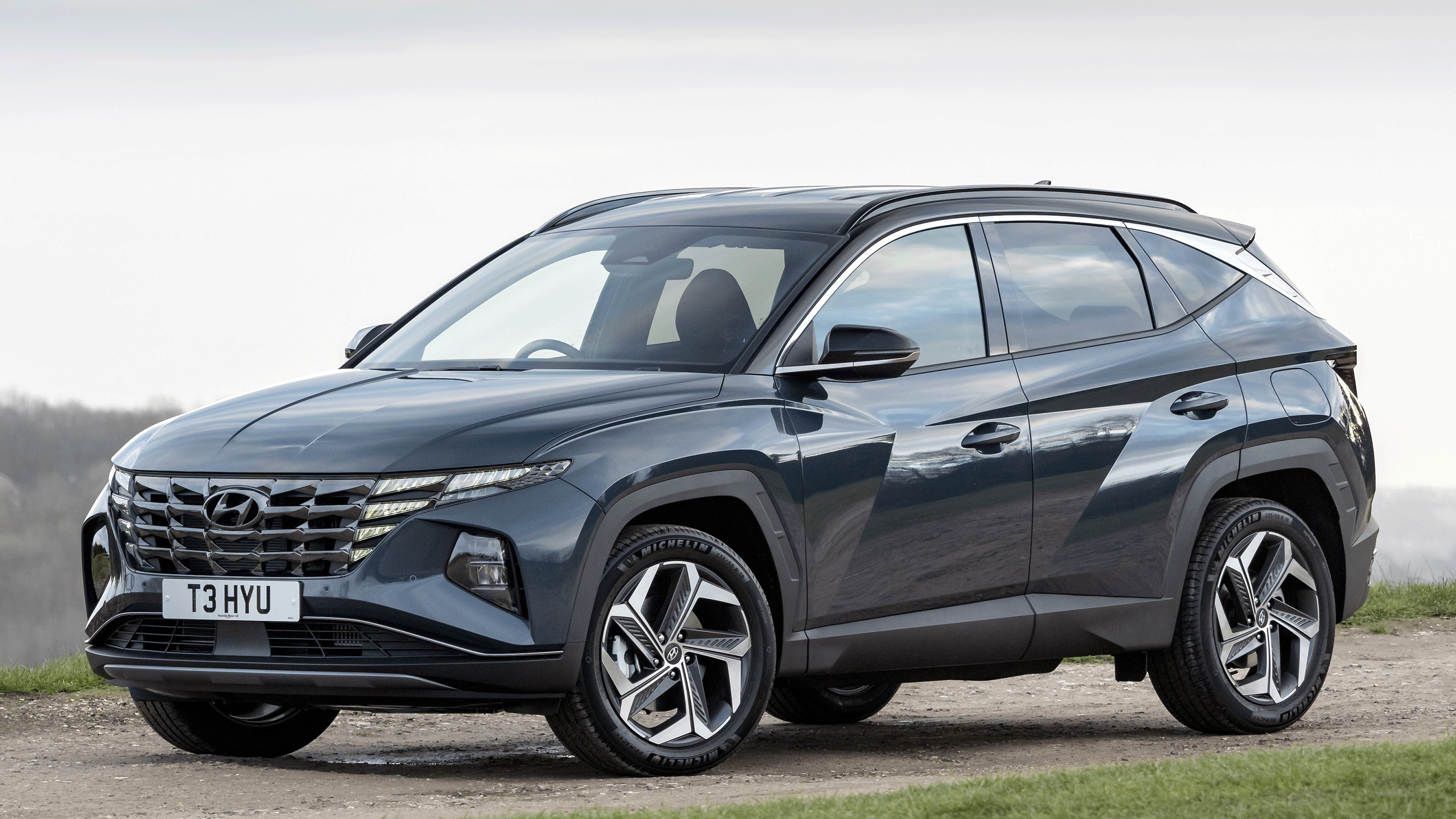
Tucson (2020)
The Hyundai Tucson is a family car that’s available in petrol, hybrid and plug-in hybrid forms

